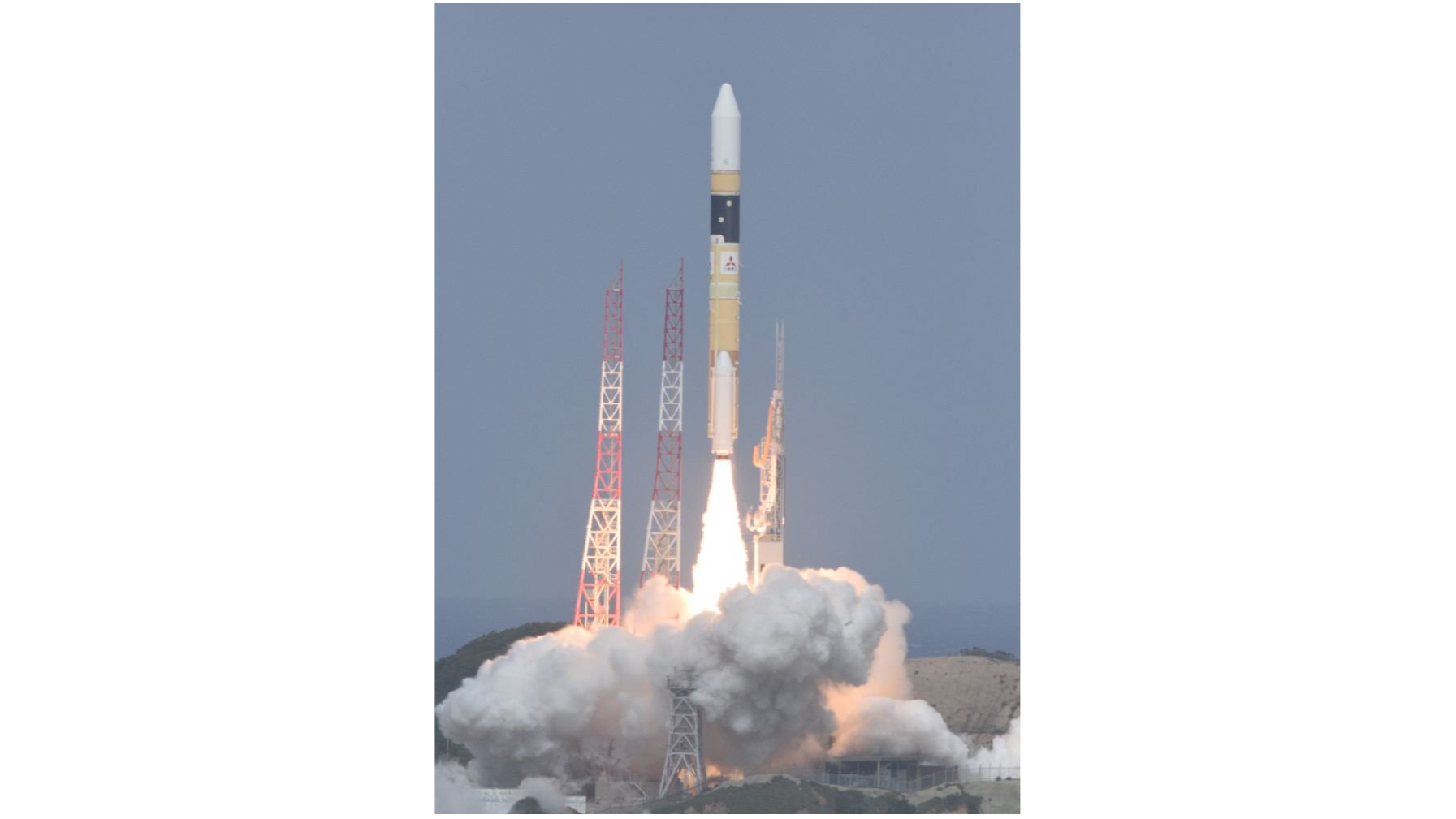Japan launches spy satellite on penultimate mission of H-2A rocket

Japan's workhorse H-2A rocket flew for the second-to-last time early Thursday morning (Sept. 26).
An H-2A topped with a secret spy satellite called IGS-Radar 8 lifted off from Japan's Tanegashima Space Center on Thursday at 1:24 a.m. EDT (0524 GMT and 2:24 p.m. local Japan time).
The rocket deployed the satellite as planned, according to Mitsubishi Heavy Industries, which builds and operates the H-2A.
According to NextSpaceflight.com, IGS-Radar 8 is headed to sun-synchronous orbit (SSO), a polar path in which satellites cruise over patches of Earth at the same local solar time each day. SSOs are common destinations for spy and weather satellites, because they provide consistent lighting conditions over time.
IGS-Radar 8 will be operated by Japan's Cabinet Satellite Information Center, like other members of the IGS ("Information Gathering System") fleet. As its name suggests, the spacecraft will study Earth in radar light, collecting data for intelligence purposes and for natural-disaster monitoring.
The IGS fleet of satellites includes both a radar and an optical line. Indeed, the most recent H-2A launch, which occurred this past January, sent the IGS-Optical 8 spy satellite to SSO.
Related: The history of rockets
Breaking space news, the latest updates on rocket launches, skywatching events and more!
Mitsubishi Heavy Industries built and operates the H-2A, which debuted in 2001. The 174-foot-tall (53 meters) rocket now has 49 missions under its belt, all of them successful except one; it failed during the November 2003 launch of the IGS 2 satellite.
The end is near for the workhorse H-2A, however. It will be retired after its 50th launch, which could occur before the end of the year. The H-2A will be replaced by the new H3, which has launched three times to date, most recently on June 30.
Editor's note: This story was updated at 2:30 a.m. ET with news of launch success and satellite deployment.

Michael Wall is a Senior Space Writer with Space.com and joined the team in 2010. He primarily covers exoplanets, spaceflight and military space, but has been known to dabble in the space art beat. His book about the search for alien life, "Out There," was published on Nov. 13, 2018. Before becoming a science writer, Michael worked as a herpetologist and wildlife biologist. He has a Ph.D. in evolutionary biology from the University of Sydney, Australia, a bachelor's degree from the University of Arizona, and a graduate certificate in science writing from the University of California, Santa Cruz. To find out what his latest project is, you can follow Michael on Twitter.
